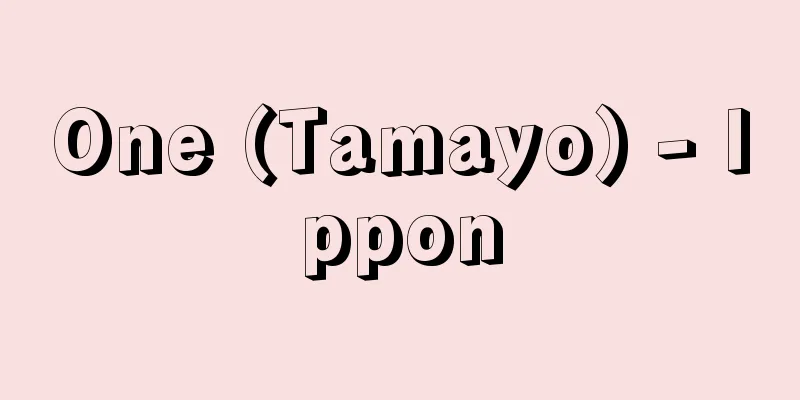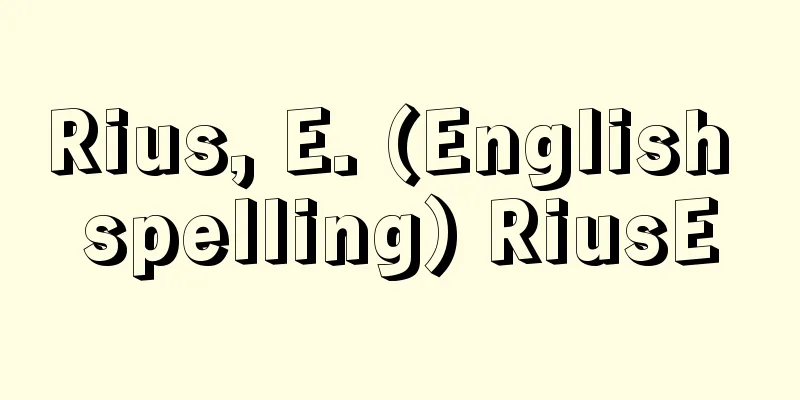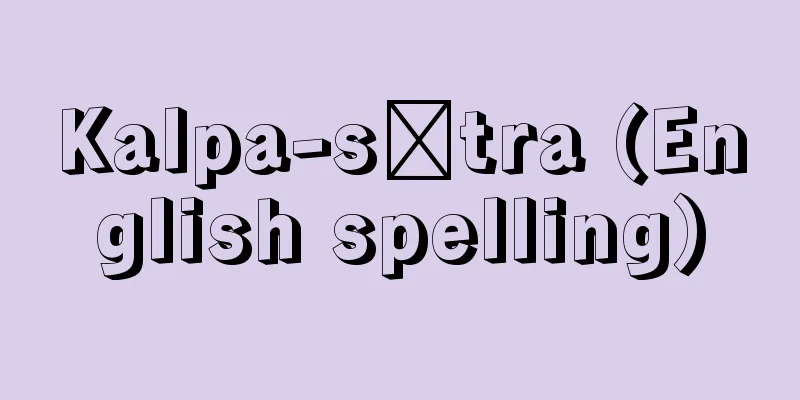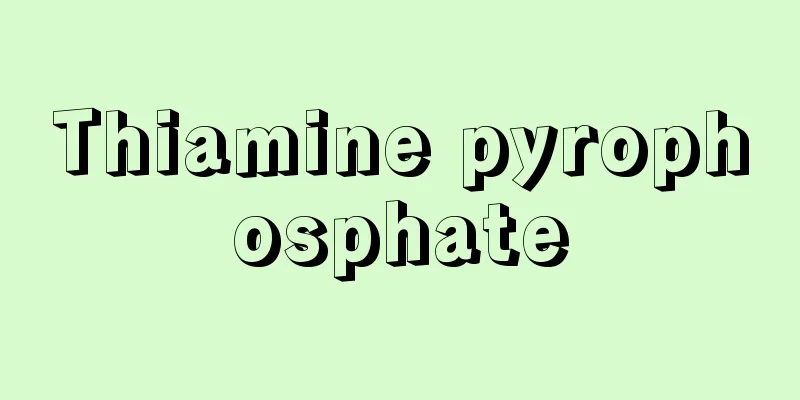Indictment - Kiso (English spelling) Erhebung der Anklage
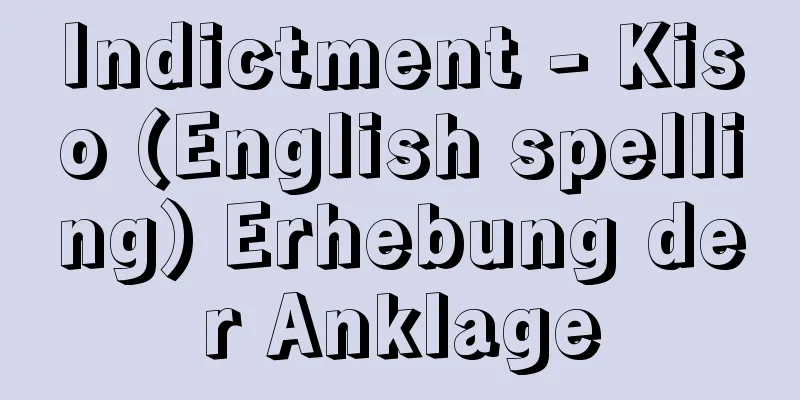
|
Under the Code of Criminal Procedure, it refers to the decision by a public prosecutor to bring charges. (1) As a result of an investigation into a specific suspected case, the public prosecutor will decide whether to indict or not (the principle of state prosecution), but indictment is a legal act that requests a trial from the court. This results in the court placing the defendant's case on hold. Indictment must be made by a formal document called an indictment. The term indictment is a term used in the Meiji Code of Criminal Procedure (Law No. 96 of 1890), and is unified under the current Code of Criminal Procedure as the term "indictment of public prosecution," but is still used today as a practical idiom. In addition, under the Code of Civil Procedure, it is called "indictment of suit." (2) Deferred prosecution In criminal proceedings, when a public prosecutor decides not to bring charges despite the existence of suspicion of a crime, taking into consideration the character, age, circumstances, and seriousness of the crime, the circumstances, and the circumstances after the crime of the criminal. This system, which was practiced around the end of the Meiji era, was adopted as law in the old Criminal Procedure Code of 1922 and is still in place in the current Criminal Procedure Code, and has a unique Japanese character. There are various types, ranging from minor offense disposals to those based on criminal policy considerations, and a considerable number of cases are currently handled this way. However, since this disposal has no finality, it is possible that the defendant will be prosecuted again later. The legislative principle that allows prosecutors legislative discretion and allows for deferred prosecution is called the principle of expediency in prosecution. Source: Encyclopaedia Britannica Concise Encyclopedia About Encyclopaedia Britannica Concise Encyclopedia Information |
|
刑事訴訟法上,検察官のなす公訴提起処分をいう。 (1) 特定の被疑事件につき,捜査の結果,検察官は起訴,不起訴の事件処理を行なうが (国家訴追主義) ,起訴は裁判所に対し審判を求める訴訟行為である。これによって被告事件に対する裁判所の訴訟係属が生じる。起訴は,起訴状という要式の書面によってなされなければならない。起訴という用語は,明治の刑事訴訟法 (明治 23年法律 96号) 上の用語で,現行刑事訴訟法上では,「公訴の提起」という用語に統一されているが,実務上の慣用語として,現在も用いられる。なお,民事訴訟法上では「訴 (うったえ) ノ提起」という。 (2) 起訴猶予 刑事手続において,犯罪の嫌疑が存在するにもかかわらず,犯人の性格,年齢,境遇,犯罪の軽重,情状,犯罪後の情状を考慮して,検察官が公訴を提起しないでおくこと。明治末期頃から慣行上行なわれていたものが,1922年の旧刑事訴訟法で法律上も採用され,現行刑事訴訟法にも受け継がれた制度で,日本独特の性格をもつ。微罪処分的なものから刑事政策的な配慮によるものまでさまざまであるが,現在,かなりの事件がこれで処理されている。しかし,この処分には確定力が存在しないから,のちに再び起訴されることもありうる。検察官の立法裁量を許し,起訴猶予を認める立法主義のことを起訴便宜主義という。
出典 ブリタニカ国際大百科事典 小項目事典ブリタニカ国際大百科事典 小項目事典について 情報 |
Recommend
Cymbal (English spelling)
A dish-shaped metal percussion instrument. Cymbal...
Ivy Compton-Burnett
1892‐1969 British female novelist. Born in London,...
Grinnell, GB (English spelling) GrinnellGB
…These experiences made him concerned about the h...
Kline, F.
...Originally, it was derived from Pollock, who w...
Aircraft identification marks
A symbol displayed on the body of an aircraft to i...
Constantine XI
1404‐53 Byzantine Emperor. Reigned 1449-53. Someti...
Yellow Turban Rebellion
A peasant revolt at the end of the Eastern Han Dy...
Tribune
〘Noun〙 (tribune)① An ancient Roman official positi...
Acetyl
A monovalent group represented by CH 3 CO- derived...
Electronic document - denshi document (English spelling) electronic document
A document is a medium that expresses, records, an...
Petrovich Avvakum
1620‐82 A 17th-century Russian archpriest. A leade...
Callithrix
…The word marmoset is said to come from an old Fr...
Donor parent - Kyoyoya
...This method is used to introduce disease resis...
Widow's pension - kafunenkin
This pension is paid to the wife when the husband ...
Pieter de Hooch (Hoogh)
1629‐84 Dutch genre painter. Born in Rotterdam. Af...


